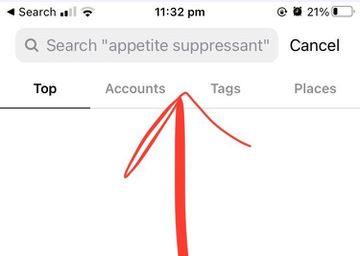Instagram has apologised after a “mistake” with its algorithm promoted diet content to users with eating disorders.
The search function in the app automatically recommended terms including “appetite suppressants” and “fasting” to some people.
Eating disorder campaigners told the BBC that vulnerable people could be triggered and even relapse.
The social media platform said harmful terms have now been removed.

A spokesman for Facebook, which owns Instagram, told the BBC it was a “mistake” and the issue was resolved on Monday.
“We recently rolled out a new search functionality on Instagram beyond hashtags and usernames, to help you more easily discover and explore content you’re most interested in,” he added.
“As part of this new feature, when you tap on the search bar, we’ll suggest topics you may want to search for.
“Those suggestions, as well as the search results themselves, are limited to general interests, and weight loss should not have been one of them.”


Lauren Black is an Instagram influencer in recovery from anorexia
“I could be triggered by this imagery and language and have a relapse.
“When I use the app, I’m often promoted things like calorie counting images and diet methods.
“People go to Instagram for support with their illness. But if you look at and research eating disorder recovery, then Instagram just throws harmful stuff at you, it can be really damaging.
“I know there are extremely helpful posts including what I create for others. But the triggering imagery should be stopped because I don’t want to be bombarded on how to lose weight.
“I try to click off it and put my phone away as soon as I see it because it upsets me.”
Eating disorders
Instagram bans any content that “promotes, encourages or glorifies eating disorders” and restricts posts advertising weight-loss products to over-18s.
Hope Virgo, an eating disorder campaigner with more than 10,000 followers on the platform, said the issue is getting worse on the app.
“Vulnerable people are getting inundated with this content, and they aren’t even actively searching for it,” she said.
“Instagram has the resources and expertise to remove content that triggers people and instead promote healthy messaging.”
But users with a history of eating disorders have told the BBC they are repeatedly recommended “damaging” content on the app.
This includes things like calorie counting posts and diet or exercise plans for weight loss.
Instagram said it only recommends discussions of fitness and healthy eating on the app’s Explore section.
‘Really harmful’
Dr Joshua Wolrich, an NHS doctor and author of Food Isn’t Medicine, was alerted to the issue by a follower on Instagram who said they were triggered.
“Eating disorders have one of the highest mortality rates of any mental health illness, so it is really important that they are dealt with in the right way,” he added.
“If people are following eating disorder accounts that are helping them in their recovery, it is then really harmful to then suddenly be shown something with exactly the opposite messaging.”
Dr Wolrich suggested that an optional function for users to switch off any weight loss-related content could help.

